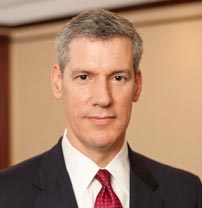January 12, 2015

By Mills Fleming, as published in Savannah Morning News
Who could ignore Jan Skutch’s Dec. 27 article, “Leaders seeking ways to save Savannah’s young black males”? The story about Savannah Mayor Pro Tem Van R. Johnson II and his initiative to address issues within our community’s youth was filled with alarming statistics which paint a grim picture for the next generation.
I applaud our city leaders for addressing this issue head-on. It is a brave statement to identify the issue and braver still to move beyond research and take concrete steps toward a lasting solution. Clearly, this piece touched a nerve in our community, and I am no exception.
As chairman of Bethesda Academy’s board of governors, I know first-hand that there is a solution; it’s been here for nearly three centuries, just a few miles down the road. Bethesda Academy is a home and school for boys in grades 6 through 12. Originally founded as an orphanage, it now serves as a safe haven for at-risk boys who want and deserve a chance to succeed.
Embodying the ethos of the founder, the Rev. George Whitefield, Bethesda teaches students that “a love for God, a love of learning and a strong work ethic” are the foundation for building men of character, resiliency and integrity.
This is accomplished through smaller-than-normal teacher-to-student ratios, positive role modeling by coaches and work mentors, a campus job for every student, spiritual guidance, and the caring conviction that every boy matters.
To quote one of our recent graduates, “Bethesda is more than a school, it’s a family.”
Jan Skutch’s article contained the distressing statistic that only 35 percent of black males in Savannah graduate high school. Under Bethesda president David Tribble’s tremendous leadership, Bethesda has an impressive and hard-won 95 percent graduation rate — and 70 percent of these students are African American. In overcoming the discouraging local statistics, we are producing not only high school graduates but also well-rounded young men who continue on to college, the military and business to spread their positive influence.
Completely independent of state funding, Bethesda raises $3.4 million annually, or about $30,000 per student. While every family is required to contribute what it can, tuition makes up only 10 percent of needed revenue at Bethesda. That said, we ensure that financial hardship does not limit access to our program, as we know how vital this institution is to our students and our community. Compared to the upward of $90,000 per year it costs to house just one young offender in a Georgia Department of Juvenile Justice secure facility, the better solution is clear. No doubt Benjamin Franklin, one of Bethesda’s first contributors, said it best: “An ounce of prevention is worth a pound of cure.”
There is success at Bethesda, and there is room to grow. With additional funding the school could enroll many additional at-risk young men and work to permanently alter the course of their lives.
The future of Savannah’s young males — of any ethnicity — is not just a political issue; it’s a question of community and commitment. Bethesda Academy offers a proven way to end the recurring cycle of despair within this demographic and build productive lives that can become headlines of hope.
T. Mills Fleming is chairman of the board of governors at Bethesda Academy, which celebrates its 275th anniversary this year.




